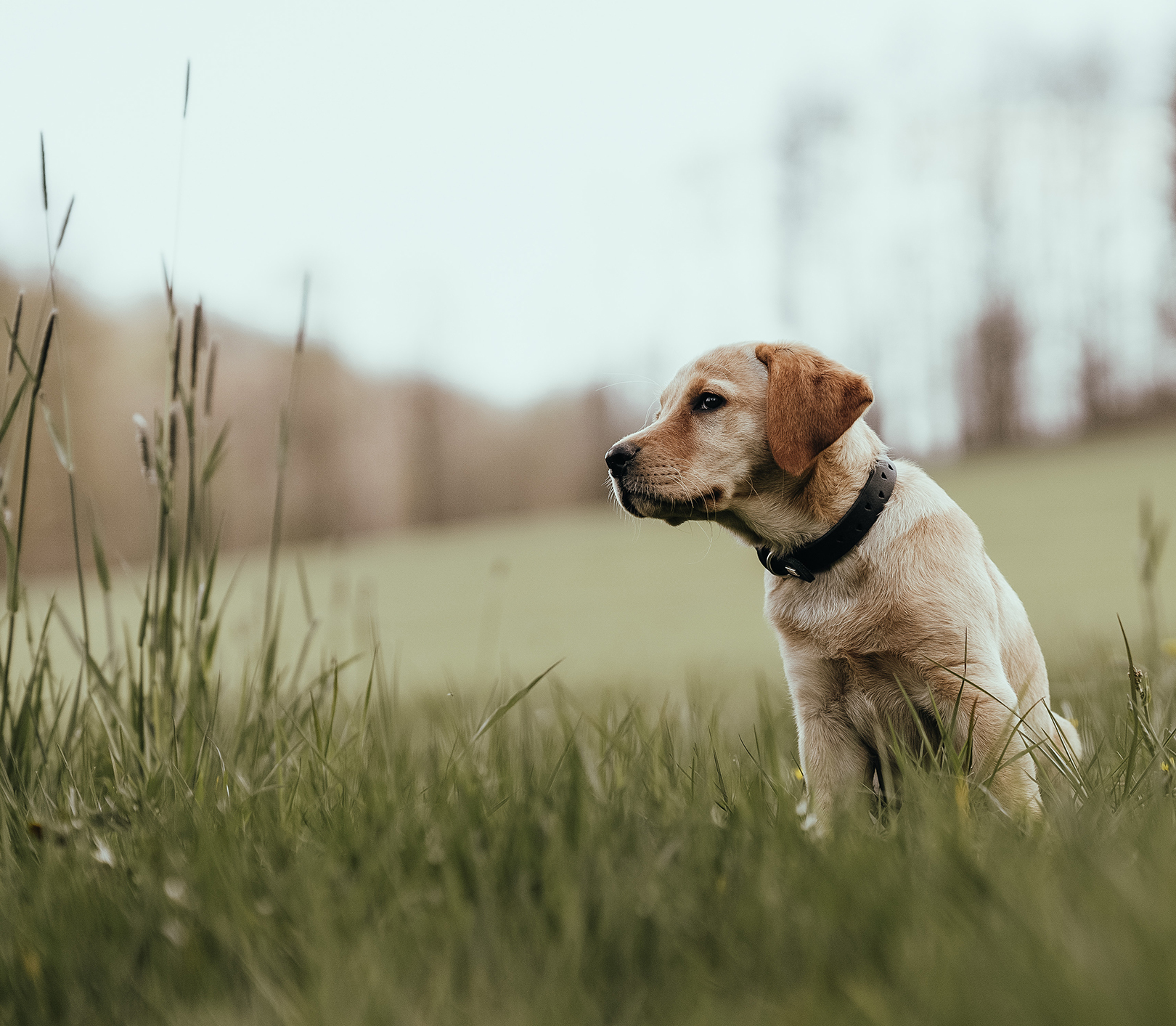My dog eats grass: What's behind it?
Your dog bites the grass, nibbles persistently on the stalks or even eats them? This can have many causes. We explain what might be behind the grass-eating:
That's why your dog eats grass: 5 causes
Grass eating is a behaviour that is quite common in dogs and there are various theories as to why dogs do this when they are uncomfortable. If your furry friend occasionally grazes on the grass, this is not always a cause for concern. Various studies and surveys suggest that around 68-79% of dogs eat grass at least occasionally. It only becomes a cause for concern if your furry friend regularly swallows large amounts of grass or if you notice signs of illness in your pet. This can be hidden behind the appetite for grass:
- Nutrition: Your dog instinctively recognises signs of deficiency. An inadequate supply of nutrients can be one cause. If the nutrients such as fibre, vitamins and folic acids in the food are not sufficient to cover his daily requirements, he will compensate for his lack of nutrients by eating grass.
- Diseases: Your four-legged friend may be suffering from acute digestive problems or stomach pain, e.g. due to too much stomach acid. However, more serious problems such as parasite infestation (e.g. worms, lungworms or other parasites and their larvae), gastritis or chronic diseases of the oesophagus also favour grass eating.
- Well-being: If your dog nibbles frantically on blades of grass but rarely swallows them, there may be psychological problems behind his behaviour. By chewing, your pet relieves stress and frustration (e.g. due to boredom or stressful changes in their life situation).
- Foreign bodies: From time to time, foreign bodies get into the throat of your furry nose. A small lint that gets stuck in the dog's throat is usually enough to trigger an unpleasant feeling in your four-legged friend. If your dog eats large amounts of grass, it will regurgitate the foreign body by inducing vomiting.
- To relieve the stomach: Another theory is that dogs eat grass to induce vomiting and thus relieve the stomach - for example, to get rid of undigested food or irritating substances, including excess stomach acid.
Our tip: If a dog rarely eats grass and generally behaves normally, owners need not worry about their dog's health. However, if the dog becomes conspicuous, appears listless, absent-minded and regularly grazes on the lush greenery, a visit to the vet's surgery is advisable to clarify the cause.
Preventing your dog from eating grass
If your dog eats grass regularly and chronic illnesses have been ruled out, it helps to first find out what your furry friend might be missing. To do this, first change your dog's food and make sure it has a particularly balanced diet to counteract any nutrient deficiencies. Important ingredients can be, for example:
- Meat: at least 50 %
- Crude protein: at least 20 %
- Crude fat: at least 10 %
- Vitamins: A - E and K
Grains and sugar, on the other hand, should not be included in the food at all or only in very small quantities. You can find more tips in our dog guide under the heading "Dog nutrition".
It may also be advisable to choose a complete food, which covers the dog's entire nutritional requirements, or you can cook for your furry friend yourself, although this will require a ration calculation by a specialist.
If your dog's behaviour remains the same despite the nutrient-rich food, observe your four-legged friend in different living and everyday situations. Perhaps a baby or a new partner has come into your life or a second pet is causing a lot of change in the household? Familiarise your dog with new things and situations slowly and with understanding. This will help you avoid stress and discomfort, which could lead to digestive problems and unwanted behaviour.
Conclusion: A few blades of grass here and a few grass stalks there are no cause for concern. However, if you can hardly go for a walk without your dog eating grass and you can't make sense of it, it's advisable to get an expert on board, e.g. a dog trainer or vet. Together you can find out the cause and identify solutions.
